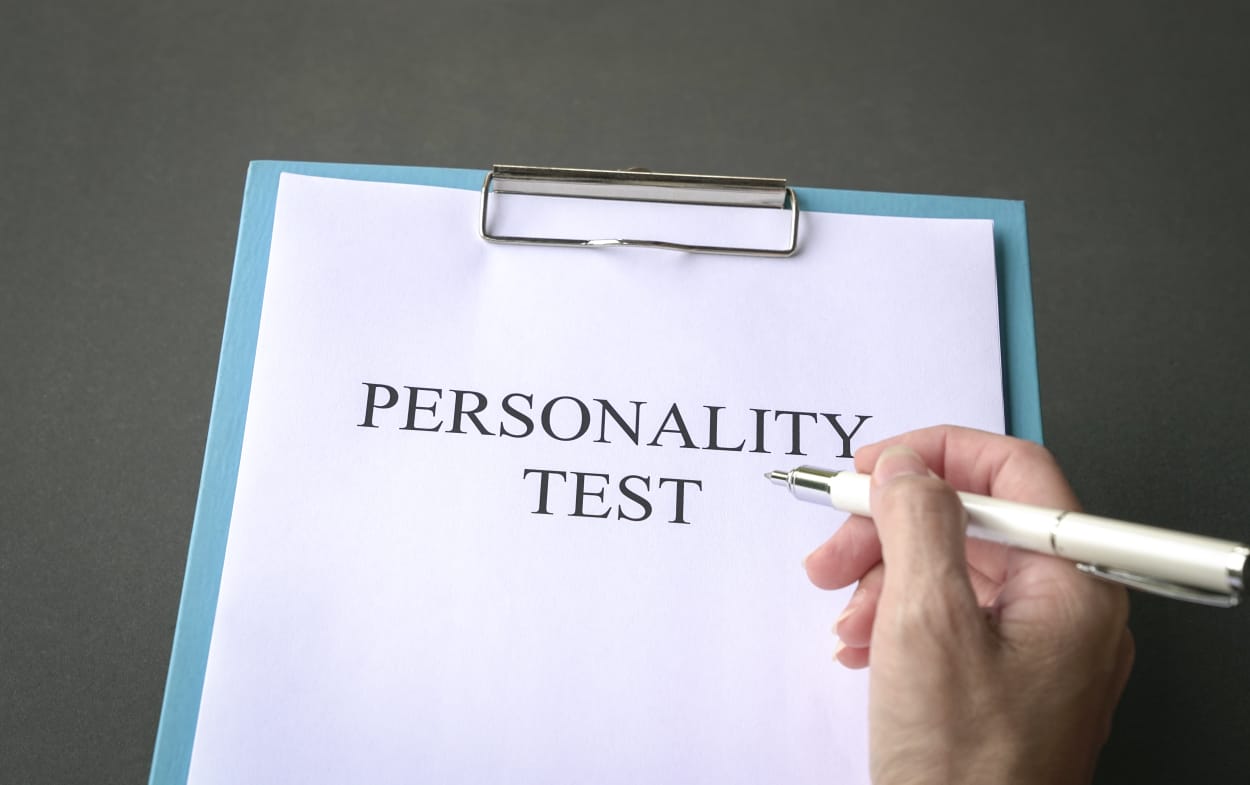The 16 personality test is a self-report personality test that divides people into 16 personality types. The test is based on the work of Carl Jung, who believed that personality is made up of four dichotomies:

* Introversion (I) vs. Extraversion (E): This dichotomy refers to where people get their energy from. Introverts prefer to focus on their own thoughts and feelings, while extroverts prefer to focus on the outside world.
* Sensing (S) vs. Intuition (N): This dichotomy refers to how people take in information. Sensors prefer to focus on concrete facts and details, while intuitives prefer to focus on abstract ideas and possibilities.
* Thinking (T) vs. Feeling (F): This dichotomy refers to how people make decisions. Thinkers prefer to use logic and reason, while feelers prefer to use their emotions.
* Judging (J) vs. Perceiving (P): This dichotomy refers to how people prefer to structure their lives. Judgers prefer to have a plan and to stick to it, while perceivers prefer to be more flexible and spontaneous.
Each of the 16 personality types is a combination of these four dichotomies. For example, an INFP is an introvert, intuitive, feeling, and perceiving type.
The 16 personality test can be a helpful tool for understanding yourself and others better. It can help you to identify your strengths and weaknesses, to learn more about your communication style, and to make better decisions. The test can also be used to help you choose a career path or to improve your relationships.
If you are interested in taking the 16 personality test, there are many free and paid options available online. When choosing a test, be sure to read the reviews to make sure that it is a reliable and valid test.
Here are some of the benefits of taking the 16 personality test:
* It can help you to understand yourself better.
* It can help you to learn more about your communication style.
* It can help you to make better decisions.
* It can help you to choose a career path.
* It can help you to improve your relationships.
If you are looking for a way to better understand yourself and others, the 16 personality test is a great option. It is a reliable and valid test that can be helpful for people of all ages.
**Here are some of the keywords that you can use in your blog post:**
16 personality test: A personality test that divides people into 16 personality types based on four dichotomies: Introversion (I) – Extraversion (E), Sensing (S) – Intuition (N), Thinking (T) – Feeling (F), and Judging (J) – Perceiving (P).
DISC assessment types: A personality test that divides people into four personality types: Dominance (D), Influence (I), Steadiness (S), and Compliance (C).
Jung typology test: A personality test that divides people into four personality types: Introverted Intuitive Thinking (INTJ), Introverted Intuitive Feeling (INFJ), Extroverted Intuitive Thinking (ENTJ), and Extroverted Intuitive Feeling (ENFJ).
MBTI: The Myers-Briggs Type Indicator, a personality test that is based on the Jungian typology test.
It divides people into 16 personality types:
Architect (INTJ)
Logician (INTP)
Commander (ENTJ)
Debater (ENTP)
Advocate (INFJ)
Mediator (INFP)
Protagonist (ENFJ)
Campaigner (ENFP)
Logistician (ISTJ)
Defender (ISFJ)
Executive (ESTJ)
Consul (ESFJ)
Virtuoso (ISTP)
Adventurer (ISFP)
Entrepreneur (ESTP)
Entertainer (ESFP)
Personality types: A set of characteristics that define a person’s unique way of thinking, feeling, and behaving.
Self-awareness: The ability to understand one’s own personality, strengths, weaknesses, and motivations.
Communication style: The way a person communicates with others, including their verbal and nonverbal communication.
Decision-making: The process of making choices about what to do.
Career path: The course of a person’s professional life, including their education, training, and work experience.
Relationships: The connections between people, including romantic relationships, friendships, and family relationships.
These are just a few of the many terms related to personality and self-understanding. By understanding your own personality type and strengths, you can better understand how you interact with others, make decisions, and achieve your goals.

